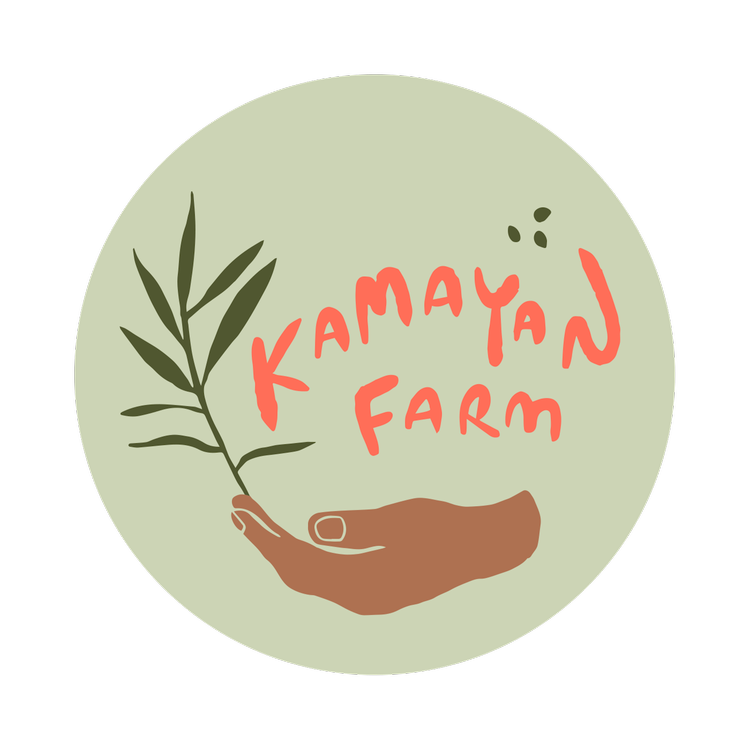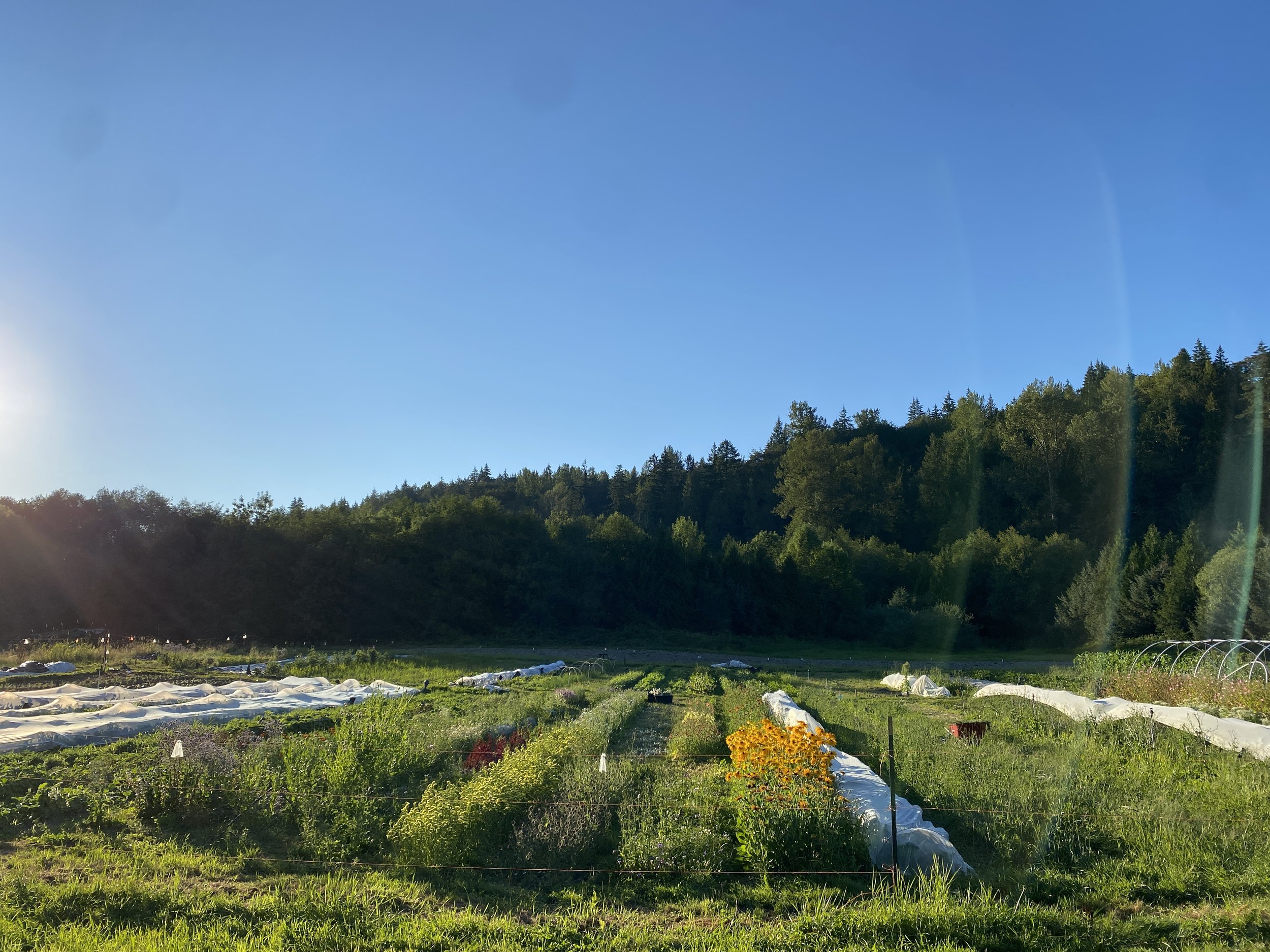
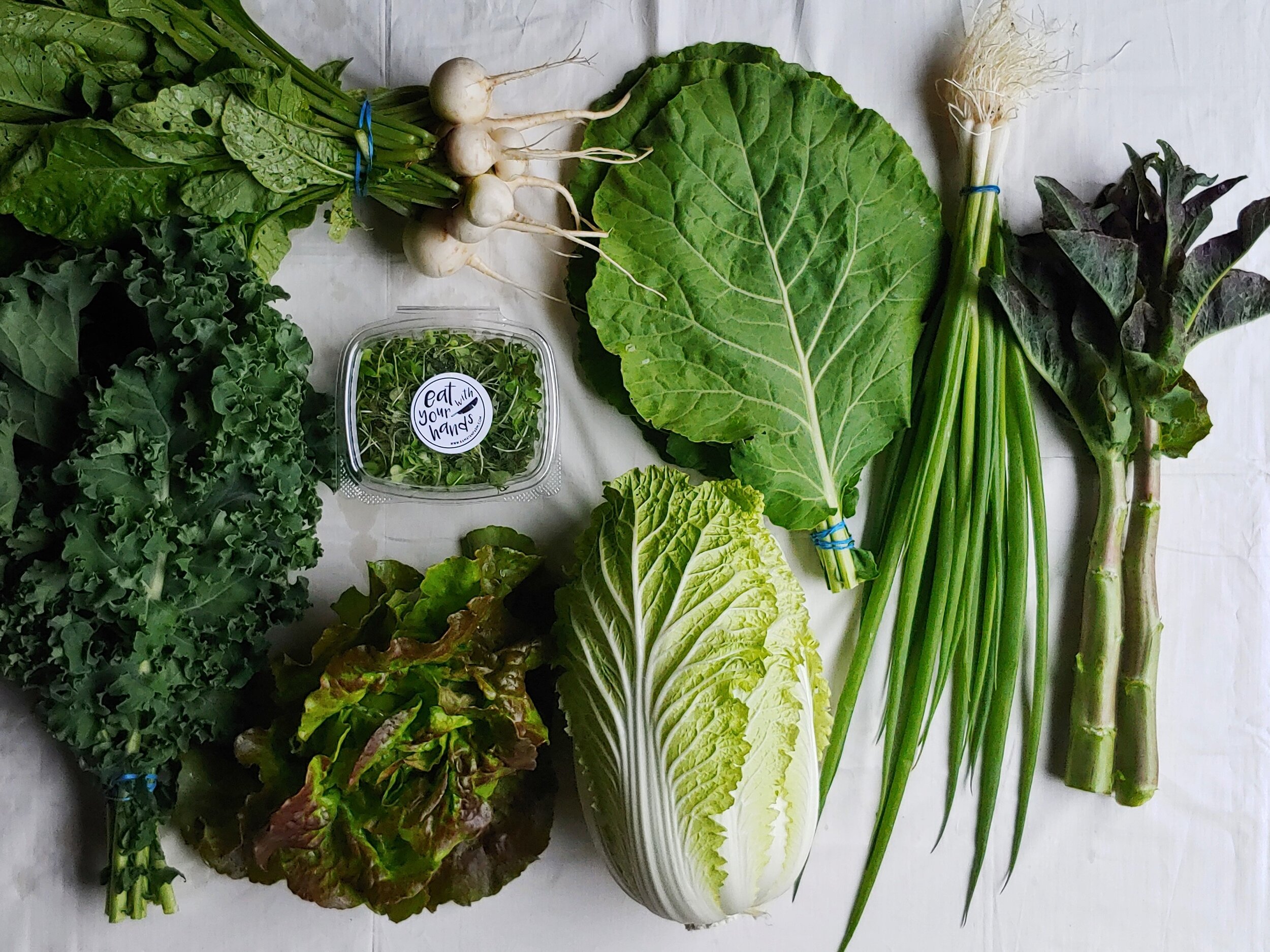
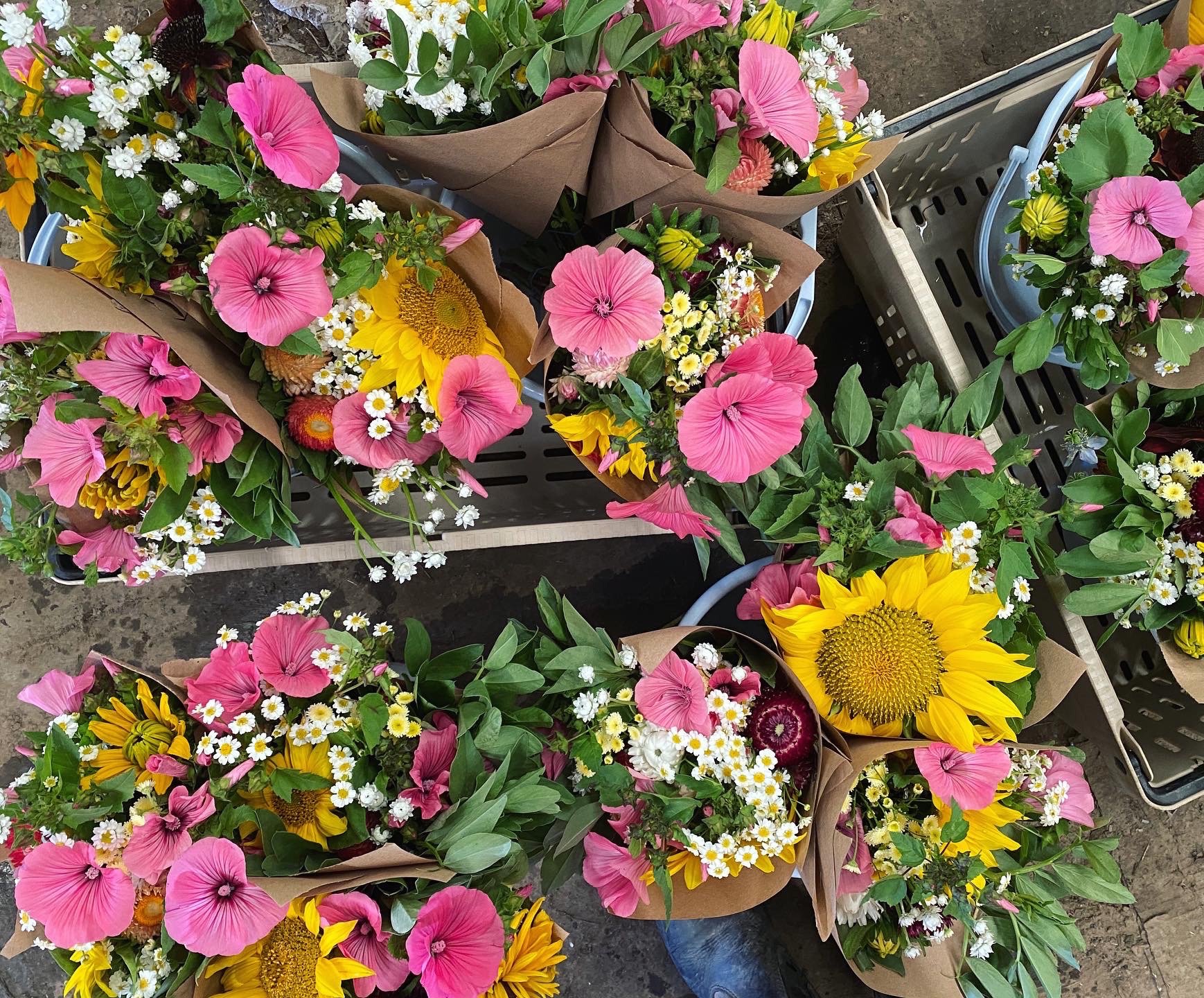
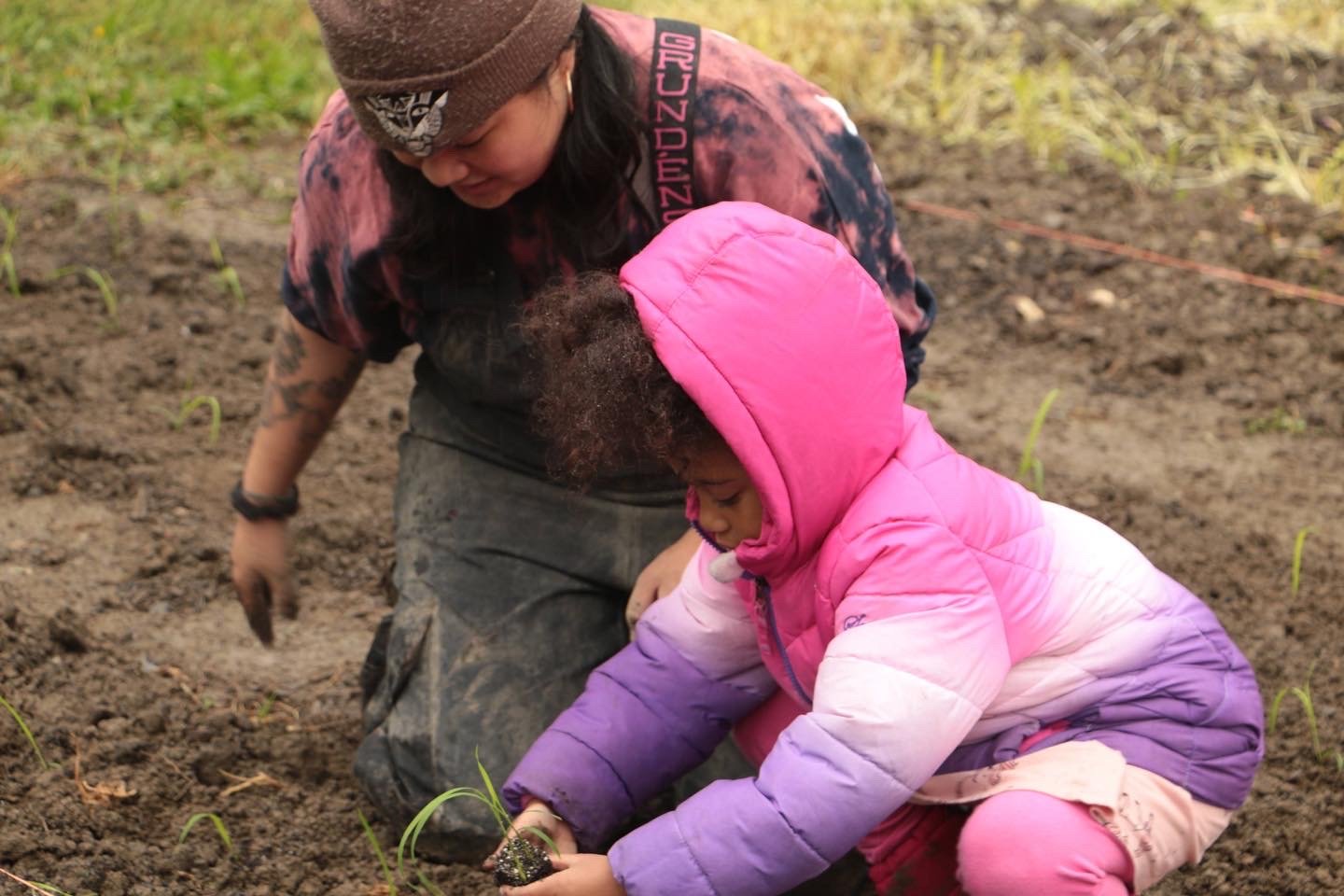
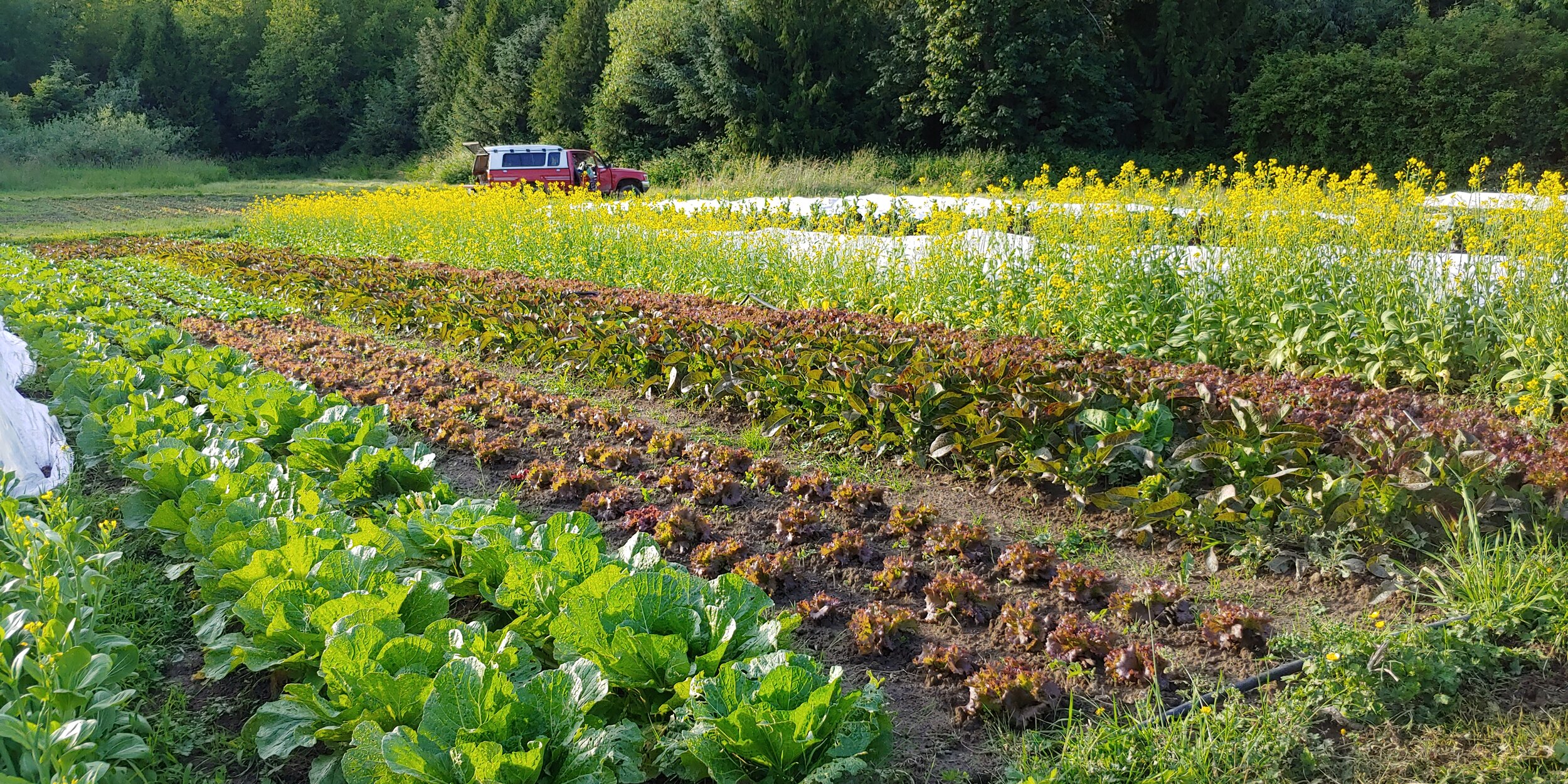
Kamayan Farm sits just 25 miles east of Seattle on Coast Salish land. Kamayan Farm is a small vegetable and flower farm with a vision of building a reciprocal and reparative connection to land.
The word kamayan is Tagalog for "with hands" and refers to the ancestral way of eating for Filipinos. A kamayan table is laden with banana leaves and then piled high with an abundance of fresh fruit, vegetables, rice, and sometimes fish or meat. In Filipino culture, food is love and a kamayan feast is like an altar to the land, community, and ancestors who, despite hundreds of years of colonization, continue to offer us resilience through food. Eating with your hands is both intimate and sacred, reminding us that we are inextricably linked to the land that feeds us.
We are also a member of Second Generation Seeds, a collective of Asian American growers, inviting our community to reclaim the narrative around Asian crops and their foodways.
We work with Community Partners that embody this notion of food as love.
Practices of Care
Our ancestors believed that everything carried a spirit. The spirits of the land, plants, and trees were treated as elders and with deep reverence. We use our daily work on the farm to honor these beliefs and the land with the following practices of care:
Low-till or no-till practices that help restore the microbial life of the soil and honor complex mycelial connections
Growing a broad diversity of plants, including veggies, flowers, and medicinal herbs to help balance the farm ecosystem
Employing integrated pest management practices to naturally reduce pests and diseases
Ensuring that all inputs are organic and from non-extractive sources
Rooting the farm in a community that is also committed to its care and sustainability
Holding ritual space to offer gratitude to the land
Photo Credit: Devon de Leña
Photo Credit: Mara Lemagie
Ariana de Leña
I often say that I’ve worked within many different parts of the food system — as an urban gardener, a food systems researcher, a server, a baker, a folk herbalist, a Federal policy nerd. There are so many threads that ultimately led me to this farm project. As a kid growing up just outside of Seattle, I would roam the forests for hours, finding comfort in the intricacies of my plant neighbors. Later, I became involved in environmental justice movements and began to develop a vocabulary for what I knew as a kid; that our resilience is deeply tied to our relationship with healthy water, soil, air, and communities.
To learn more about our work, please check out our In The Media page.
